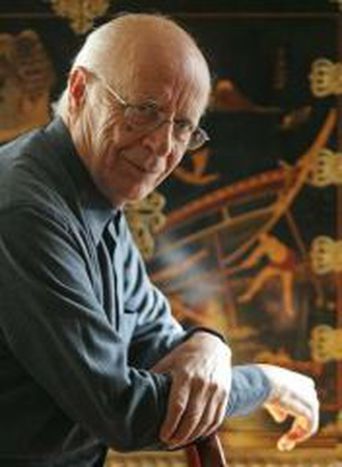
HUMAN FACTOR 2008: Emilio Lledó on words
Published on
Emilio Lledó Iñigo was born in Sevilla 81 years ago, but he stays young. This philosopher is, above all, a fan of language. He weighs and tastes every word and manages to deliver a discourse that feels like savoring the best of meals. And not because he uses complex or poetic words, but because of the opposite: the precision and naturalness with which he conveys the most abstract ideas.
He is one of those cases that exemplify well that one’s wisdom is not necessarily reflected in the use of elaborate words.
More than optimistic, Emilio Lledó starts his speech with a warning: “”
Do not let them convince you that life is worse than it was back in the day… no, no, no… I have lived enough and I can assure you that this saying has been going on for years and that life as we know it is much better than before. Despite the brutality, violence, and barbarity of humankind, we do not have the right to stop fighting for life, love, words… we do not have the right to lose hope, because it is not so true that as long as there is life, there is hope, but rather as long as there is hope, there is life.
But, what is the key to progress? to life? Words. According to him, “”. His message flows around words, language as the connecting thread of life. “.” Those root languages, beyond the frontiers marked by mother tongues, are “” This variety of root languages is what enriches the World, according to Lledó.
being able to use words is what makes us humanThe world is full of mother tongues, but it is not them that define us, root languages dothe fingerprint of our soul, everyone has its own.
“” Therefore, diversity is not an obstacle to understand the attitude some have towards the Tower of Babel, but more like a way of enriching ourselves, sharing opinions that allow us to understand the Other to, starting from there, engage in dialogue with each individual, using other root languages, with other people.Writing allows us to communicate with root languages, with Kant, Descartes… and talking allows us to do so with the root languages that surround us.
Europe - although Lledó did not mention it - is a clear example of the search for union, not in unification but rather in the enrichment that can be reached through diversity when there is understanding. It is, or at least it could be.



